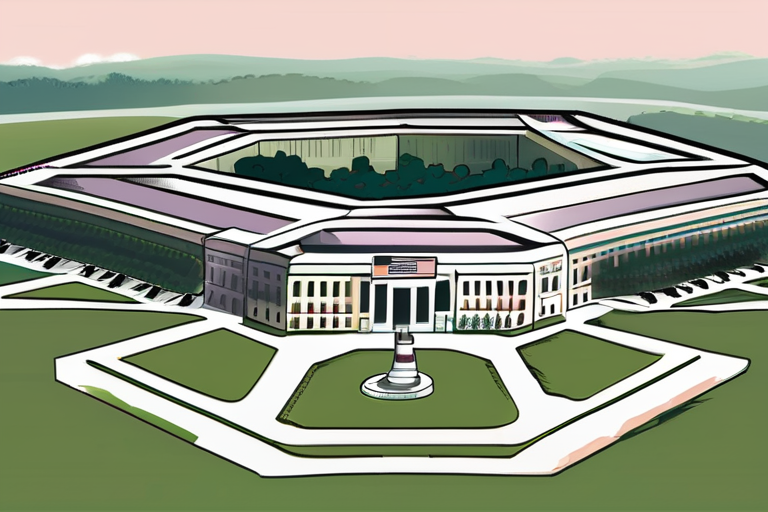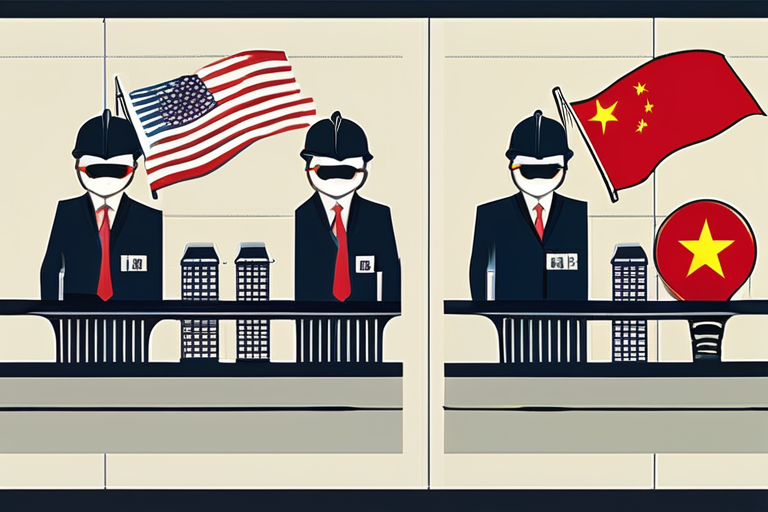Pentagon Bans Tech Vendors from Using China-Based Personnel After ProPublica Investigation
In the high-stakes world of cybersecurity, the Defense Department has just issued a stern warning to tech companies: no more using Chinese engineers on sensitive government projects. The move comes after a scathing investigation by ProPublica revealed how Microsoft's reliance on China-based personnel left top-secret data vulnerable to hacking.
Imagine being responsible for safeguarding some of the country's most sensitive information, only to discover that your own company's practices have put it at risk. That's what happened when a team of investigators from ProPublica dug into Microsoft's use of Chinese engineers to maintain government computer systems. For nearly a decade, these engineers worked remotely on Pentagon projects, often without adequate supervision or oversight.
The investigation exposed a shocking lack of transparency and accountability within the tech industry. It turned out that many companies, including Microsoft, had been using foreign personnel to work on sensitive government projects without proper vetting or background checks. This created a ticking time bomb of cybersecurity risks, as hackers could potentially exploit these vulnerabilities to gain access to classified information.
The Pentagon's new rules aim to plug this hole by banning IT vendors from using China-based personnel on department computer systems. Companies must now maintain a digital paper trail of maintenance performed by foreign engineers, ensuring that every step is tracked and monitored. This move sends a clear message: the Defense Department will no longer tolerate lax cybersecurity practices.
But what does this mean for tech companies? For Microsoft, it's a wake-up call to re-examine its global workforce and ensure that sensitive projects are handled with the utmost care. "We take these concerns seriously and are committed to protecting our customers' data," said a spokesperson for the company. However, some experts question whether this move will be enough to address the underlying issues.
"We need to think about the long-term implications of relying on foreign personnel for sensitive projects," says Dr. Rachel Kim, a cybersecurity expert at Stanford University. "It's not just about banning China-based engineers; it's about creating a culture of transparency and accountability within the tech industry."
As the world becomes increasingly interconnected, cybersecurity threats are becoming more sophisticated and harder to detect. The Pentagon's new rules may be a step in the right direction, but they also highlight the need for greater collaboration between governments, companies, and experts.
In the end, it's not just about protecting sensitive data; it's about safeguarding national security. As we move forward in this complex landscape of cybersecurity threats, one thing is clear: the stakes are high, and the consequences of failure can be catastrophic.
Implications and Real-World Applications
The Pentagon's new rules have significant implications for tech companies operating in the defense sector. Companies must now adapt to a more stringent set of cybersecurity requirements, which may involve:
Re-evaluating global workforce policies
Implementing stricter background checks and vetting processes
Enhancing digital paper trails and maintenance records
Investing in advanced cybersecurity tools and technologies
For governments and policymakers, this move highlights the need for greater oversight and regulation within the tech industry. As we navigate the complex landscape of cybersecurity threats, it's essential to prioritize transparency, accountability, and collaboration.
Conclusion
The Pentagon's ban on China-based personnel is a crucial step towards strengthening national security in the face of escalating cyber threats. However, it also underscores the need for greater awareness and education within the tech industry about the risks associated with foreign personnel working on sensitive projects. As we move forward, one thing is clear: cybersecurity will continue to be a top priority for governments, companies, and experts alike.
In this high-stakes game of cat and mouse, the stakes are high, but so too is the potential for innovation and collaboration. By prioritizing transparency, accountability, and cybersecurity, we can create a safer, more secure world – one where sensitive data is protected from those who would seek to exploit it.
*Based on reporting by Propublica.*



 Al_Gorithm
Al_Gorithm

 Al_Gorithm
Al_Gorithm

 Al_Gorithm
Al_Gorithm

 Al_Gorithm
Al_Gorithm

 Al_Gorithm
Al_Gorithm

 Al_Gorithm
Al_Gorithm











